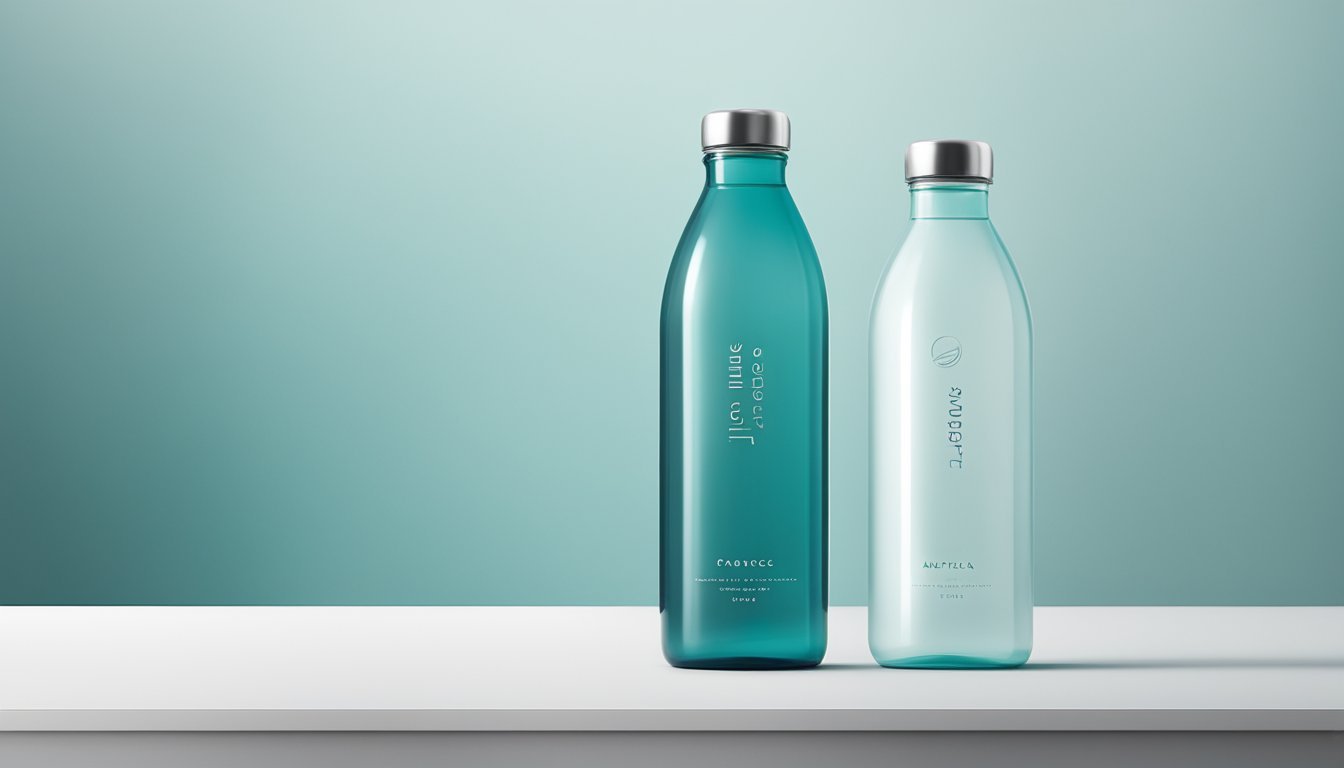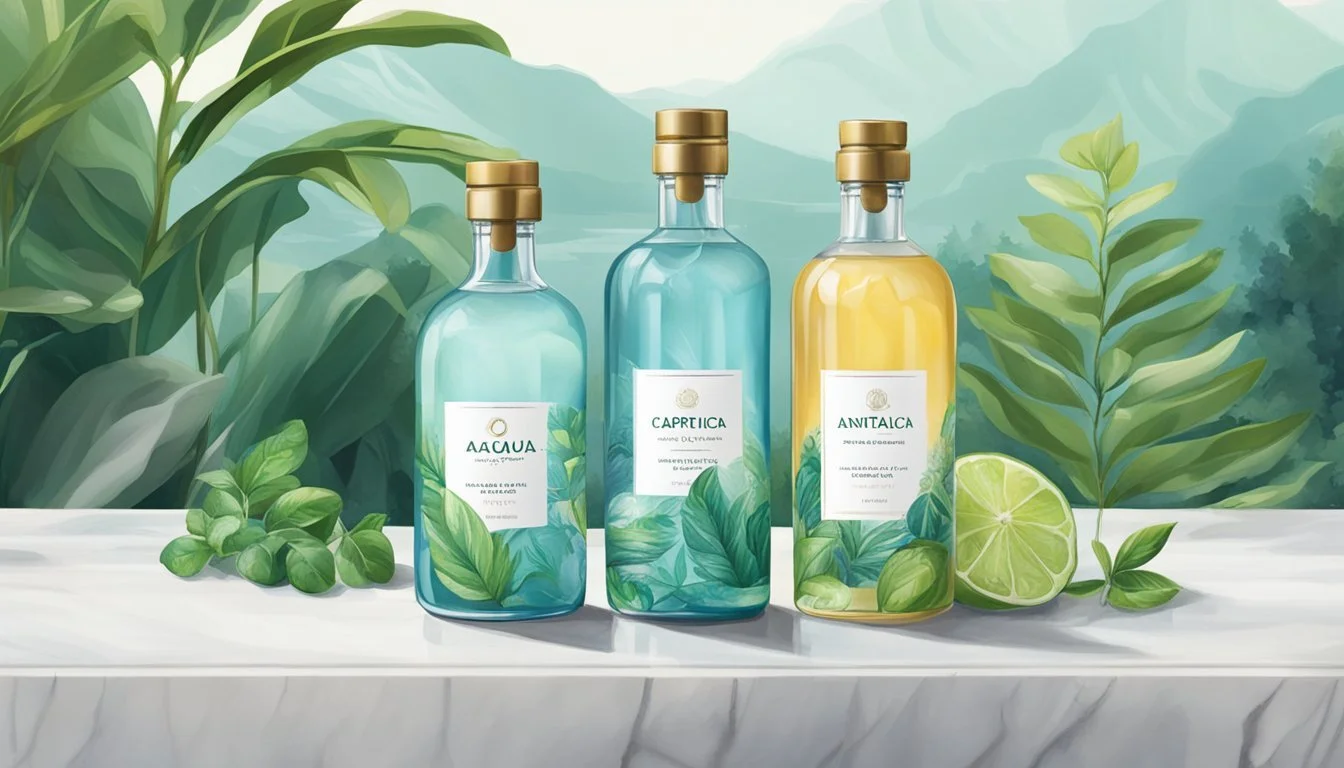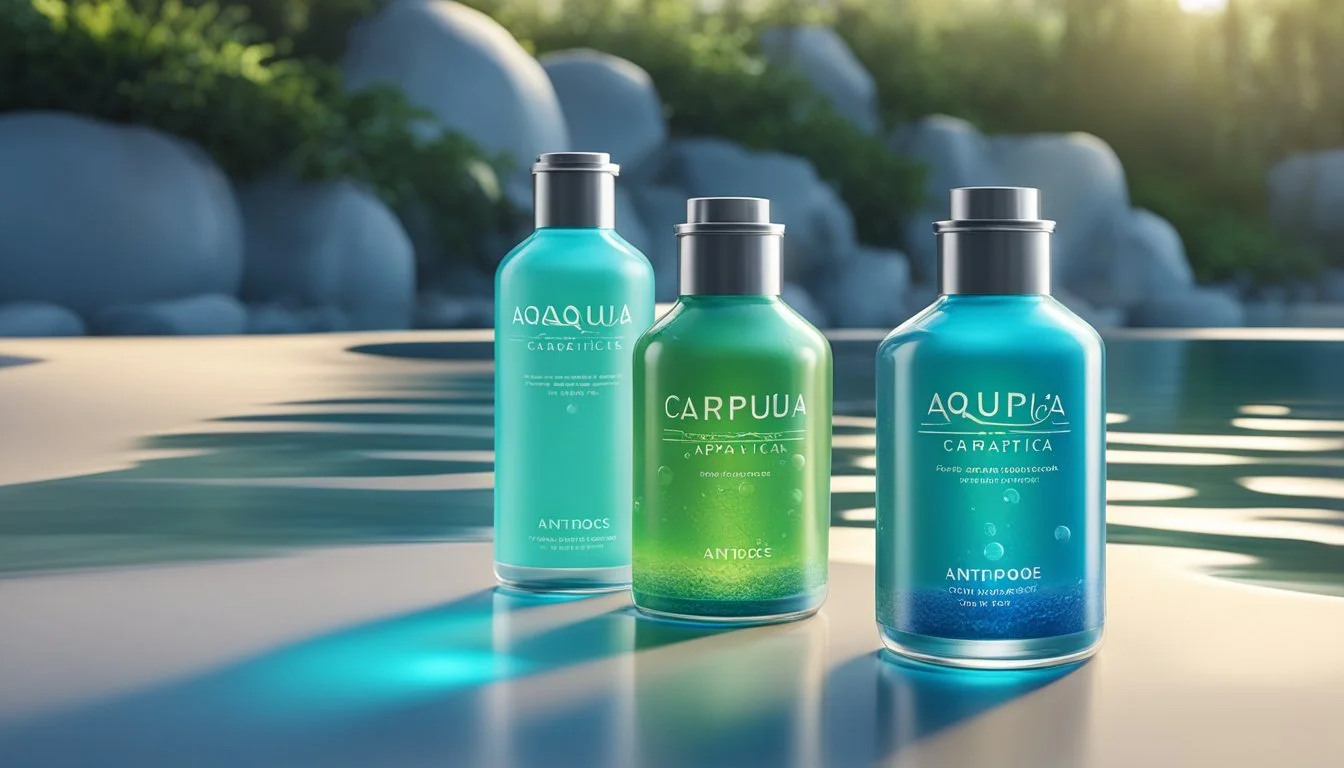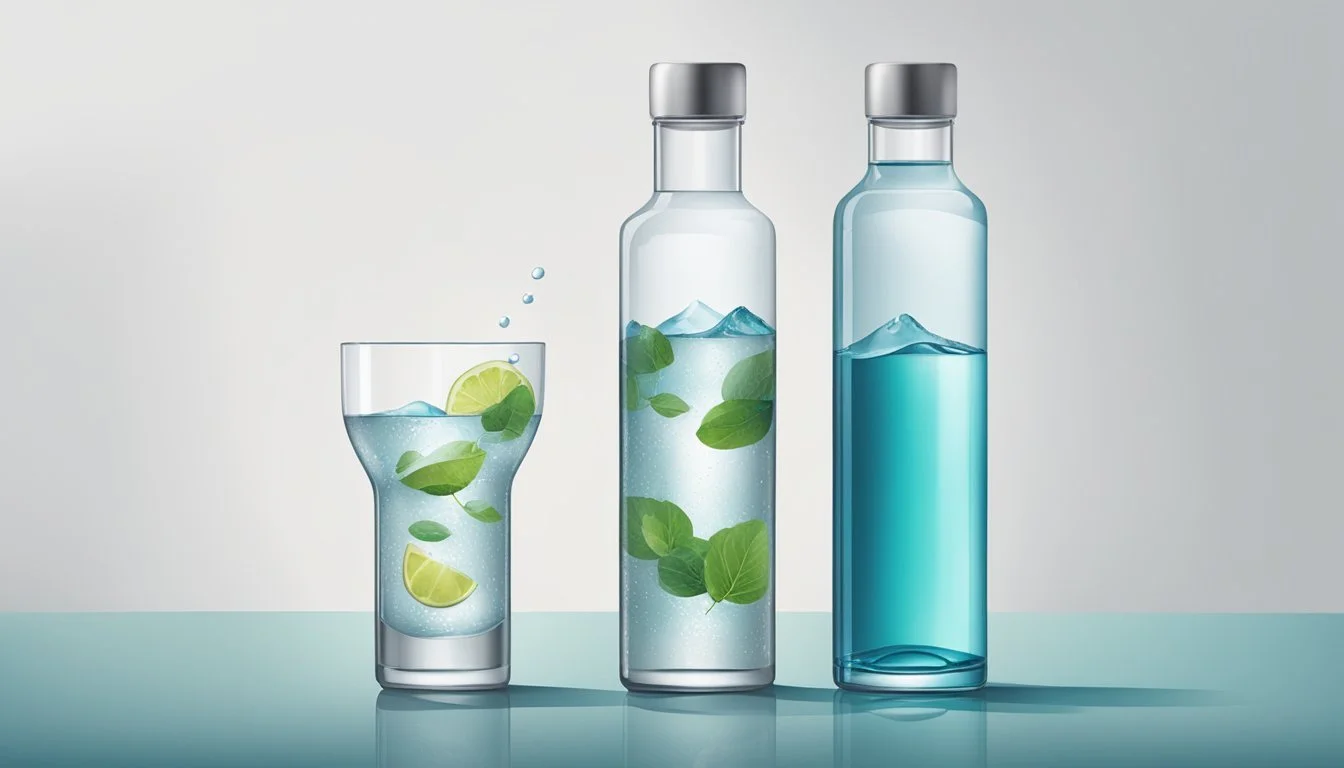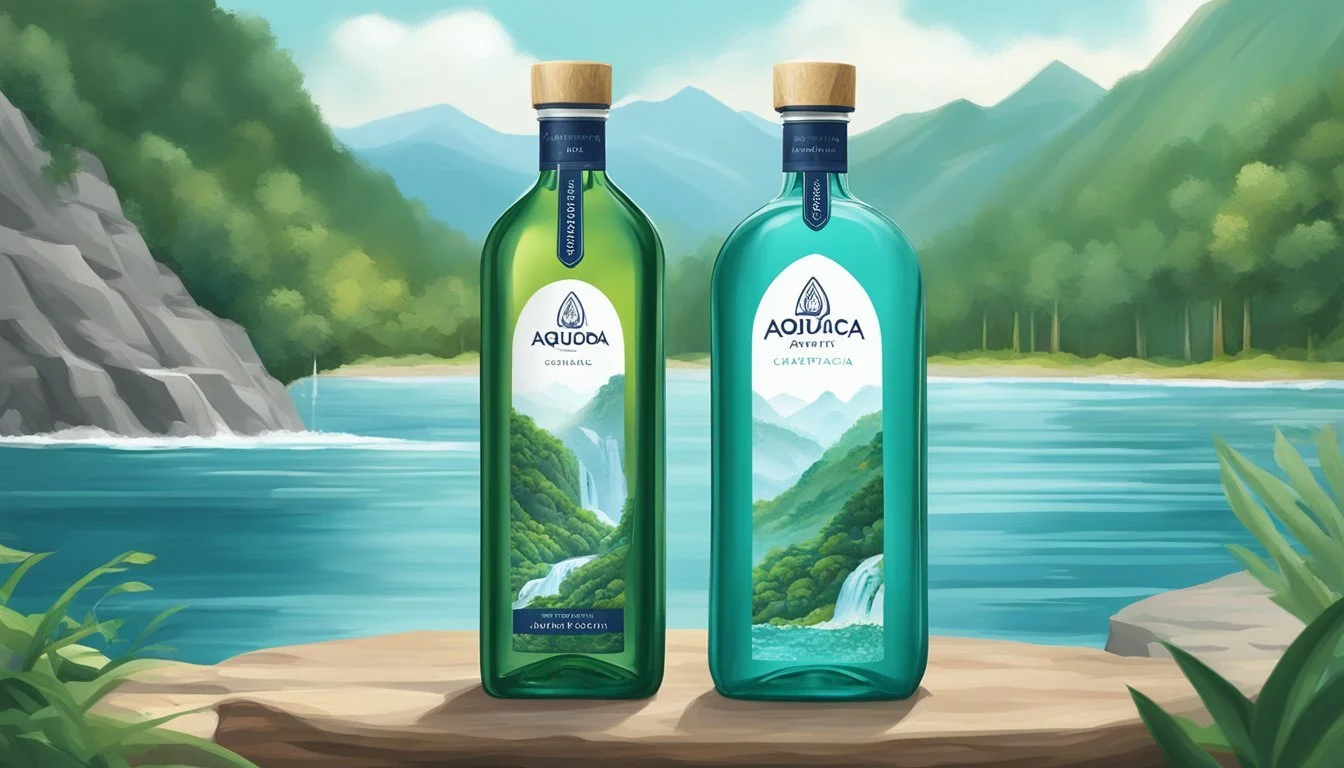Aqua Carpatica vs. Antipodes
Comparing Premium Bottled Waters
Choosing the right bottled water can be a challenge with so many options available. Aqua Carpatica and Antipodes are two brands that stand out in the market, each with unique qualities that appeal to different preferences. When comparing the two, Aqua Carpatica impresses with its naturally nitrate-free composition and low sodium content, making it a top choice for health-conscious consumers.
Antipodes, on the other hand, offers artesian water that is also praised for its purity and smooth, clean taste. Sourced from New Zealand, Antipodes has gained a reputation for its sustainable bottling practices and minimalistic design. Both brands excel in providing high-quality hydration, but they cater to different tastes and priorities.
As you explore further, understanding the distinct benefits of each brand can help you decide which bottled water suits your needs best. The following comparison will delve deeper into the taste profiles, health benefits, and sourcing practices of Aqua Carpatica and Antipodes to guide your choice.
Background and Origin
Aqua Carpatica and Antipodes both pride themselves on sourcing water from unique and pristine environments, ensuring high-quality hydration options.
The Carpathian Mountains and Aqua Carpatica
Aqua Carpatica originates in the Carpathian Mountains of Romania, a region known for its untouched nature and purity. The water is sourced from the Paltinis Spring, located deep within the Carpathians, where the environment has remained unaltered for centuries.
This natural spring water boasts of being nitrate-free and has low sodium levels, promoting better health. The water’s purity is attributed to the geological formations surrounding the Carpathian Springs, ensuring that no contaminants seep into the water. The pristine nature of this region means Aqua Carpatica offers one of the purest bottled waters available.
The Source of Antipodes
Antipodes water is sourced from an ancient aquifer in the North Island of New Zealand. This aquifer lies beneath a designated site of scientific interest, where the isolation ensures minimal human impact. The water is naturally filtered through layers of sand, rock, and clay, which removes impurities and adds beneficial minerals.
The aquifer's remote location in Whakatane ensures that the water remains untouched by pollution. With a focus on sustainability, Antipodes uses carbon-neutral processes for bottling and transportation, adding to its appeal. The naturally high silica content in the water contributes to its smooth taste, making it a premium choice for bottled water enthusiasts.
Water Quality and Purity
Two bottled waters, Aqua Carpatica and Antipodes, stand out for their high standards of water quality and purity. Aqua Carpatica boasts being nitrate-free, and Antipodes highlights its natural filtration process.
Aqua Carpatica: Nitrate-Free Purity
Aqua Carpatica, sourced from the Carpathian Mountains, takes pride in its nitrate-free purity. Carpathian Springs SA ensures that their water is free from potentially harmful substances such as nitrates, making it a safe choice for consumers. This distinction sets Aqua Carpatica apart as a natural mineral water option with a focus on health.
Furthermore, the total dissolved solids (TDS) in Aqua Carpatica are kept at a balanced level, enhancing its purity without compromising taste. This balance is essential as TDS measures the presence of inorganic salts and small amounts of organic matter, which affect water flavor and health benefits.
Antipodes: Natural Filtration and Pristine Quality
Antipodes water undergoes a natural filtration process that gives it a pristine quality. Sourced from an aquifer located in New Zealand, this water benefits from natural filtration through rock formations, which act as a natural barrier against contaminants.
The result is a water that is exceptionally pure and free from pollutants. The location of the aquifer ensures that Antipodes water is not exposed to agricultural runoff or industrial contaminants, reinforcing its status as a premium bottled water choice. Additionally, Antipodes maintains a balanced TDS level, which contributes to its clean, crisp taste, appreciated by consumers and connoisseurs alike.
Health and Hydration Benefits
Both Aqua Carpatica and Antipodes offer unique health benefits through their distinct mineral compositions and hydration qualities. This section compares these two brands based on their electrolytes and mineral content, as well as their contribution to overall wellness and hydration.
Electrolytes and Mineral Content
Aqua Carpatica is renowned for its specific mineral content, particularly its high calcium and magnesium levels. Calcium is essential for healthy bones, while magnesium supports muscle and nerve function. Aqua Carpatica also boasts a low nitrate content, which is beneficial for those monitoring nitrate intake.
Antipodes, sourced from New Zealand, contains a balanced blend of essential minerals, including bicarbonate, silica, and sulfate. Bicarbonate aids in maintaining pH balance, while silica supports connective tissue health. Sulfate, though present in smaller amounts, contributes to detoxification processes in the body.
Hydration and Wellness
Aqua Carpatica's balanced mineral content contributes to effective hydration, providing essential electrolytes such as potassium and sodium. These electrolytes are crucial for maintaining fluid balance and proper cellular function. The water's natural alkalinity, with a pH level around 7.8-7.9, can help neutralize acidity in the body, promoting overall wellness.
Antipodes, with a slightly alkaline pH level of approximately 7.8, also supports the body's hydration needs. Its minerals, like chloride, aid in maintaining electrolytic balance and ensuring proper hydration. The water's purity and low mineral content make it a good choice for those seeking a gentle, natural hydration option.
Taste Profile Comparison
When comparing Aqua Carpatica and Antipodes bottled waters, taste preferences and the influence of their mineral content are crucial factors to consider.
Still versus Sparkling Preferences
Aqua Carpatica offers both still and sparkling varieties, appealing to a range of preferences. Its still water is lauded for its clean, crisp taste, free from nitrates and with very low sodium levels. This purity enhances its appeal, making it a favorite among those who prefer a neutral and refreshing taste.
Contrastingly, Antipodes is known for its still water which boasts a smooth and silky mouthfeel. It’s renowned for its balanced mineral composition, which contributes to a subtle yet distinct flavor profile. The sparkling version of Antipodes offers a delicate effervescence that enhances its gentle mineral taste without overpowering the palate.
The Role of Minerals in Taste
Mineral content significantly impacts the taste of bottled water. Aqua Carpatica's naturally nitrate-free water also contains essential minerals like calcium and magnesium, which contribute to its slightly sweet and clean taste. This mineral balance ensures a refreshing drinking experience.
Antipodes, sourced from deep aquifers in New Zealand, features a harmonious blend of minerals such as silica and bicarbonate. These minerals give Antipodes its smooth and delicately sweet taste, distinguishing it from other brands. The low total dissolved solids (TDS) in Antipodes water ensure that the taste is pure, enhancing its reputation among water sommeliers.
Environmental Considerations and Packaging
Aqua Carpatica and Antipodes both market themselves as premium bottled water brands with a focus on environmental sustainability. This section examines their bottling practices and the materials used in their packaging.
Eco-Friendliness of Bottling Practices
Aqua Carpatica boasts that its water is naturally nitrate-free, which suggests minimal environmental contamination during sourcing. Furthermore, their operations emphasize low sodium levels, potentially reducing the ecological footprint.
Antipodes, sourced from New Zealand, claims carbon neutrality in its bottling process. This involves efforts like using renewable energy and efficient water usage methods. Both brands are committed to minimizing their environmental impact, but their specific strategies and effectiveness may vary.
Packaging Materials: Glass versus Plastic
Aqua Carpatica primarily uses 100% recyclable PET plastic bottles. While plastic is often seen as less sustainable, the brand promotes recycling to mitigate environmental harm. Despite this, plastic’s recyclability rates depend heavily on consumer participation and local recycling capabilities.
Antipodes opts for glass bottles, which are fully recyclable and generally preferred for reducing plastic pollution. Glass also has a longer life cycle and is less likely to leach chemicals. However, glass is heavier, leading to higher transportation emissions.
The choice between Aqua Carpatica's plastic and Antipodes' glass thus becomes a balance between recycling efficiency and transportation impacts. Packaging plays a crucial role in each brand's environmental footprint, requiring consumers to weigh the pros and cons of materials.
Price and Market Comparison
When comparing Aqua Carpatica and Antipodes, it's essential to examine both the cost and market availability to understand their positions in the bottled water industry. This comparison will focus on prices, market reach, and consumer accessibility.
Cost Analysis of Aqua Carpatica and Antipodes
Aqua Carpatica offers a competitive pricing structure. For instance, a 500ml bottle of their Still Natural Mineral Water typically retails for about £0.65, while their Naturally Sparkling option is around £0.69. This pricing suggests accessibility for everyday consumers prioritizing high-quality, nitrate-free water.
Antipodes, sourced from New Zealand, has a higher price point reflecting its premium positioning. A 500ml bottle usually costs between £1.50 and £2.00. The higher price aligns with its branding as an artisanal water emphasizing purity and environmental consciousness.
Availability and Consumer Choice
Aqua Carpatica is widely accessible through various retailers including Amazon and Ocado, providing easy access for consumers. Convenience and affordability play significant roles in its market success. This water brand has effectively positioned itself as a go-to choice for consumers seeking quality hydration without breaking the bank.
Antipodes, while less ubiquitous, targets niche markets through upscale grocery retailers and online platforms. This exclusivity enhances its appeal among consumers seeking unique, premium products. Availability may be limited compared to Aqua Carpatica, but its market presence remains robust among specialty stores and online shoppers.
By understanding these factors, consumers can make informed decisions based on both price and availability, balancing cost with accessibility and choice.
Unique Attributes
Aqua Carpatica and Antipodes both offer distinctive features that set them apart in the bottled water market. They cater to different preferences in terms of water type and offer benefits that appeal to specific consumer needs, including wellness and pregnancy.
Sparkling Mineral Water versus Still Natural Mineral Water
Aqua Carpatica excels in offering both sparkling and still natural mineral water. The sparkling variant is known for its refreshing and crisp effervescence, derived naturally from its source. This makes it a preferred choice for those who enjoy a fizzy drink without added sugars or artificial carbonation.
In contrast, the still natural mineral water variant promises a pure and smooth taste. Sourced from the Carpathian Mountains, it is naturally nitrate-free and low in sodium, appealing to health-conscious consumers. This variety ensures a clean and subtle flavor profile, ideal for daily hydration without the bubbles.
Antipodes, on the other hand, focuses predominantly on still natural mineral water. Sourced from a deep aquifer in New Zealand, it boasts a low mineral content and a notably smooth taste. The water is known for its pristine quality, making it popular among those who prefer a non-sparkling option free from any pronounced mineral flavor.
Specialty Waters in Wellness and Pregnancy
When it comes to wellness and pregnancy, both brands highlight unique benefits. Aqua Carpatica is particularly noted for its naturally nitrate-free composition, making it suitable for pregnant women who need to be cautious about nitrate intake. The low sodium levels further enhance its appeal for those monitoring their salt consumption for health reasons.
Antipodes also positions itself as a suitable option for wellness seekers. Its water is free from contaminants, contributing to overall health and well-being. Although not specifically targeted at pregnant women, its purity and clean taste make it a safe and enjoyable choice for this demographic as well.
In both cases, the alignment with health and wellness trends positions these brands as premium options for consumers focused on their personal health.

